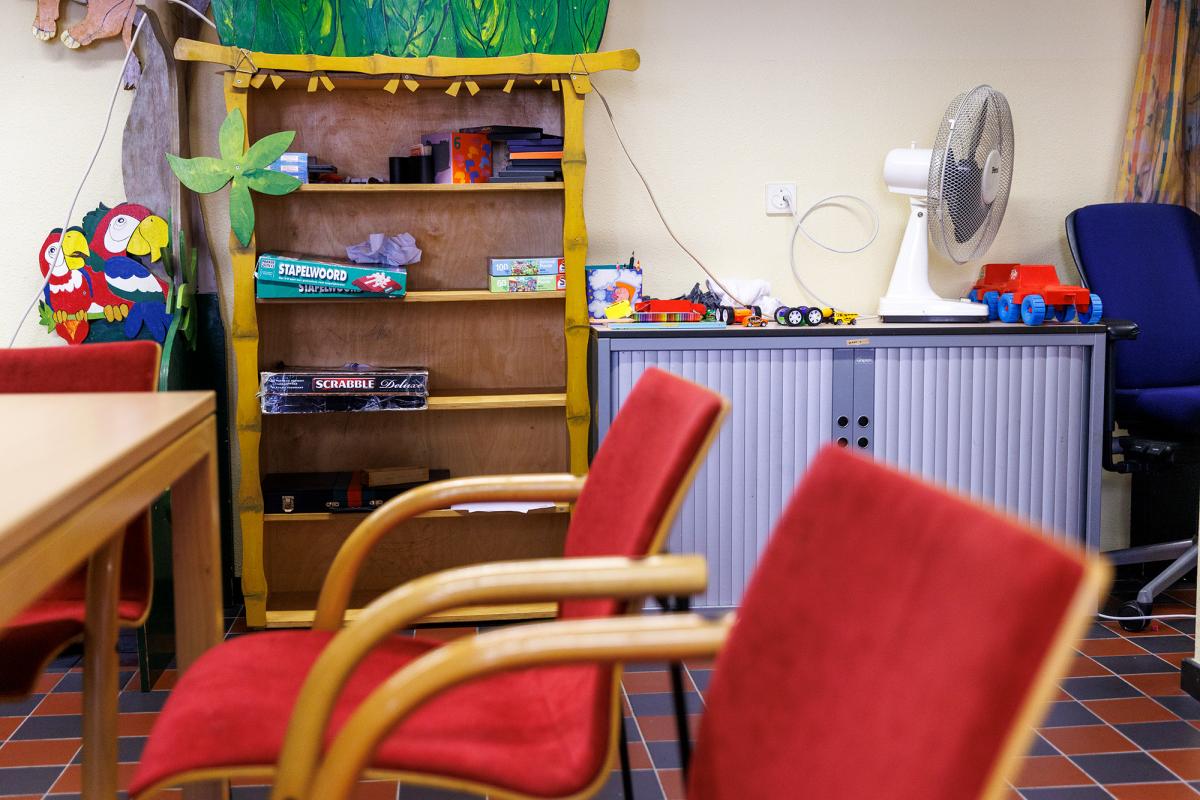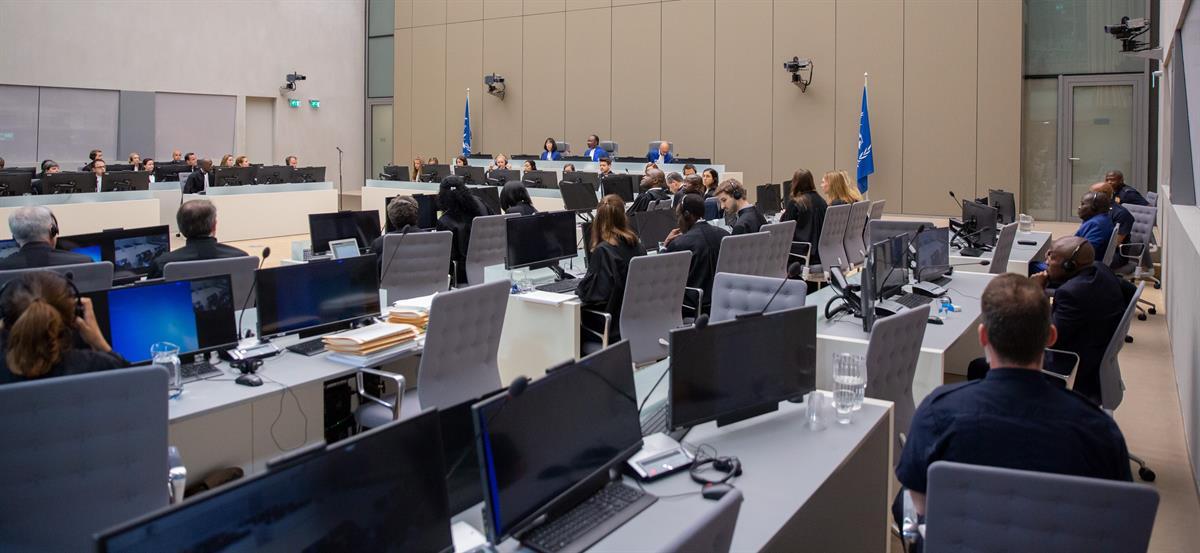What is the Trust Fund for Family Visits?
The Trust Fund for Family Visits (“TFFV”) contributes to protecting the right to and respect of family life for all indigent persons detained at the Detention Centre of the International Criminal Court. The TFFV is dependent on voluntary contributions from States, organisations and individuals and funds family visits of the nuclear family of indigent detained persons who lack independent means to visits.
To ensure the responsible use of donations to the Fund and prevent any abuse thereof, requests for family visits by indigent detainees are approved by the Registry only if they meet specific criteria, including that recipients must be members of the nuclear family of indigent detained persons and must not have means to visit.



How was it created?
In a public decision of 10 March 2009, the ICC Presidency upheld that the Court had an obligation to provide and fund family visits for indigent detained persons due to the fact that: (i) persons detained in The Hague tend to be far from where their family is located and often lack the means to fund such visits, (ii) pre-trial proceedings and detention, during which time detained persons are presumed innocent, can extend over several years, and (iii) family visits affect positively the well-being of detained persons. The Presidency further added that the Registrar should ensure that provision is made for the funding of family visits to indigent detained persons in the budget of the Court.
This Presidency decision was reinforced by a 2009 Resolution of the Assembly of States Parties inviting the Court to continue to address the well-being of its detained persons, with particular focus on the maintenance of family contacts. In 2010, the TFFV was established by the ASP, who charged the Court with its promotion and the collection of voluntary donations.
Why is the TFFV important?
Respect of international human rights standards and the well-being of detained persons
In accordance with international human rights standards, the right to receive family visits is not only a human right but also fundamentally affects the well-being of the detained person. Maintaining family ties is a central component of the identity of every individual.

Family visits also facilitate the future re-integration of a detained person following acquittal or release after sentence. The detained person's right correlates with the interests of other affected individuals such as those of his/ her children of minority age who wish to have contact with their detained parent.
The TFFV provides an essential contribution to the psychological and physical well-being of detainees, especially those who are indigent, by ensuring a key human right: enabling during their time in detention, visits from their families who could not otherwise afford to visit them.
Contribution to the efficient conduct of proceedings
It is evident that direct contact with immediate family members, through visits organised by the TFFV, has played a critical role in promoting the psychological well-being of the detained persons throughout what is an often lengthy judicial process. In turn, this has a positive impact on the efficient and smooth conduct of the judicial proceedings and has helped to avoid any unnecessary delays.

The facilitation of family visits through the TFFV ensures not only the good health and well-being of the detained person but also a smooth and efficient flow in the proceedings.
Proper administration of the detention centre and implementation of its policies, practices and regulations
The TFFV has allowed for the good management of the detention centre. The physical distance of detained persons from their families can create, throughout time, feelings of frustration which require a lot from the detention centre. It is noticeable that family visits provide an opportunity to maintain contact and to lower these feelings of stress and frustration, which allows the detention centre to save valuable time and financial and human resources by not requiring for example special surveillance procedure. From its over fifteen years of experience, the detention centre notes that connection with families not only lowers frustrations from the detained persons, but also contributes to reducing litigation with defence teams, which has an impact on the human and financial resources of the Detention section, the Registry as a whole and the Presidency.
What are the challenges?
The TFFV is subsidized mostly through voluntary contributions by States and other entities. The Court is in continuous need of additional funding in order to ensure that the indigent detained persons requesting family visits can receive such visits.
If the TFFV is not regularly replenished, it will easily reach a very critical situation, such as the one in 2019 when the TFFV was completely depleted. The Registry would then not be in a position to facilitate family visits for its indigent detained persons. This would deprive them from their right to family life.
In the event of lack of funds in the TFFV, it has been noted that the lack of family visits may cause a degree of emotional hardship for the detained person and affect his/ her psychological and/ or physical well-being. Examples of detrimental consequences that could occur are sense of isolation due to the distance with family, depression or, even worse, self-harm. Furthermore, when a detained person is not fit to attend his trial, this would lead to delays in the proceedings, which would affect the Court’s valuable time as well as its human and financial resources. There are significant costs attached to every day of cancelled hearings.
Statistics (updated on 31 December 2022)
475 000 €
Total contributions since the creation of the TFFV in 2010
134 000 €
New contributions in 2022
11
Indigent detained persons who have benefitted from family visits since 2011
42
Family visits funded by the TFFV
127
family members benefitted from funded family visits, including 82 children
What support can be given to the TFFV?
Contributions are necessary to ensure the sustainability of the TFFV. All contributions whether small or large contribute to helping the Court to meet its obligations towards indigent detained persons.
States Parties and other entities can help to increase awareness about this fund at the national level by sharing information about the TFFV and requesting from the Registry any additional information that may be required. States and other entities are also welcome to make proposals about how to ensure the sustainability of this important Fund. States and other entities that are interested in making a donation or have questions regarding the TFFV are invited to contact the Registry by using this email.
Background information
Information products
Relevant Presidency decision and ASP resolutions
Relevant legal framework
- Right to the respect of family life:
article 16 of the Universal Declaration of Human Rights,
article 8 of the European Convention on Human Rights,
articles 17 and 23 of the International Covenant on Civil and Political Rights - Right of a detained person to receive family visit:
ICC legal framework
regulation 100(1) of the Regulations of the Court and
regulation 179 of the Regulations of the Registry
International Human Rights Law
Standard Minimum Rules for the Treatment of Prisoners, adopted by the United Nations in 1977 and updated in 2015, provide that “Prisoners shall be allowed, under necessary supervision, to communicate with their family and friends at regular intervals: (a) By corresponding in writing and using, where available, telecommunication, electronic, digital and other means; and (b) By receiving visits”, emphasizing that “[s]pecial attention shall be paid to the maintenance and improvement of […] relations between a prisoner and his family […].”
the Body of Principles for the Protection of All Persons under Any Form of Detention or Imprisonment, adopted by the United Nations General Assembly in 1988, provides that “[a] detained or imprisoned person shall have the right to be visited by and to correspond with, in particular, members of his family [...]”